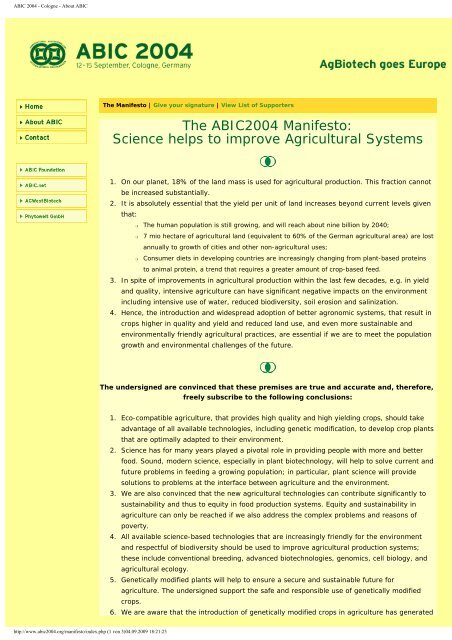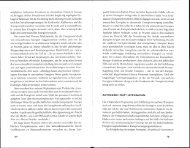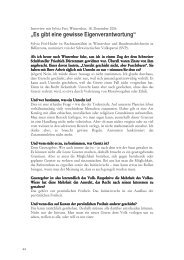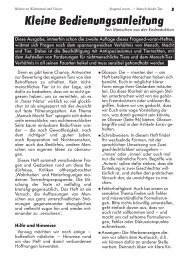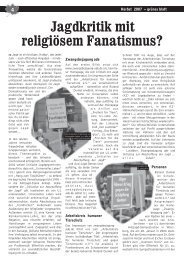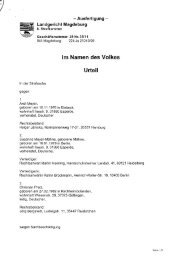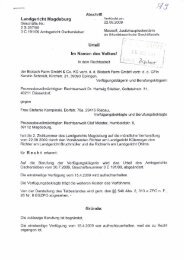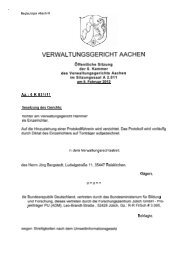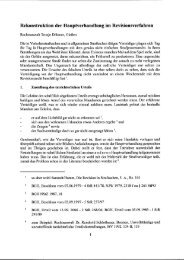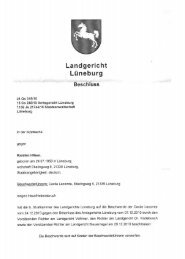Fußnoten und weiteren Quellen - Projektwerkstatt
Fußnoten und weiteren Quellen - Projektwerkstatt
Fußnoten und weiteren Quellen - Projektwerkstatt
Sie wollen auch ein ePaper? Erhöhen Sie die Reichweite Ihrer Titel.
YUMPU macht aus Druck-PDFs automatisch weboptimierte ePaper, die Google liebt.
ABIC 2004 - Cologne - About ABIC<br />
The Manifesto | Give your signature | View List of Supporters<br />
The ABIC2004 Manifesto:<br />
Science helps to improve Agricultural Systems<br />
1. On our planet, 18% of the land mass is used for agricultural production. This fraction cannot<br />
be increased substantially.<br />
2. It is absolutely essential that the yield per unit of land increases beyond current levels given<br />
that:<br />
http://www.abic2004.org/manifesto/index.php (1 von 3)04.09.2009 18:21:23<br />
❍ The human population is still growing, and will reach about nine billion by 2040;<br />
❍ 7 mio hectare of agricultural land (equivalent to 60% of the German agricultural area) are lost<br />
annually to growth of cities and other non-agricultural uses;<br />
❍ Consumer diets in developing countries are increasingly changing from plant-based proteins<br />
to animal protein, a trend that requires a greater amount of crop-based feed.<br />
3. In spite of improvements in agricultural production within the last few decades, e.g. in yield<br />
and quality, intensive agriculture can have significant negative impacts on the environment<br />
including intensive use of water, reduced biodiversity, soil erosion and salinization.<br />
4. Hence, the introduction and widespread adoption of better agronomic systems, that result in<br />
crops higher in quality and yield and reduced land use, and even more sustainable and<br />
environmentally friendly agricultural practices, are essential if we are to meet the population<br />
growth and environmental challenges of the future.<br />
The <strong>und</strong>ersigned are convinced that these premises are true and accurate and, therefore,<br />
freely subscribe to the following conclusions:<br />
1. Eco-compatible agriculture, that provides high quality and high yielding crops, should take<br />
advantage of all available technologies, including genetic modification, to develop crop plants<br />
that are optimally adapted to their environment.<br />
2. Science has for many years played a pivotal role in providing people with more and better<br />
food. So<strong>und</strong>, modern science, especially in plant biotechnology, will help to solve current and<br />
future problems in feeding a growing population; in particular, plant science will provide<br />
solutions to problems at the interface between agriculture and the environment.<br />
3. We are also convinced that the new agricultural technologies can contribute significantly to<br />
sustainability and thus to equity in food production systems. Equity and sustainability in<br />
agriculture can only be reached if we also address the complex problems and reasons of<br />
poverty.<br />
4. All available science-based technologies that are increasingly friendly for the environment<br />
and respectful of biodiversity should be used to improve agricultural production systems;<br />
these include conventional breeding, advanced biotechnologies, genomics, cell biology, and<br />
agricultural ecology.<br />
5. Genetically modified plants will help to ensure a secure and sustainable future for<br />
agriculture. The <strong>und</strong>ersigned support the safe and responsible use of genetically modified<br />
crops.<br />
6. We are aware that the introduction of genetically modified crops in agriculture has generated


